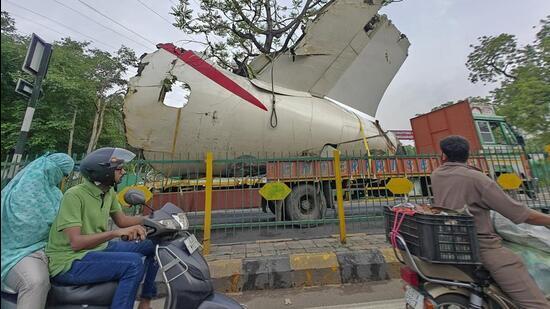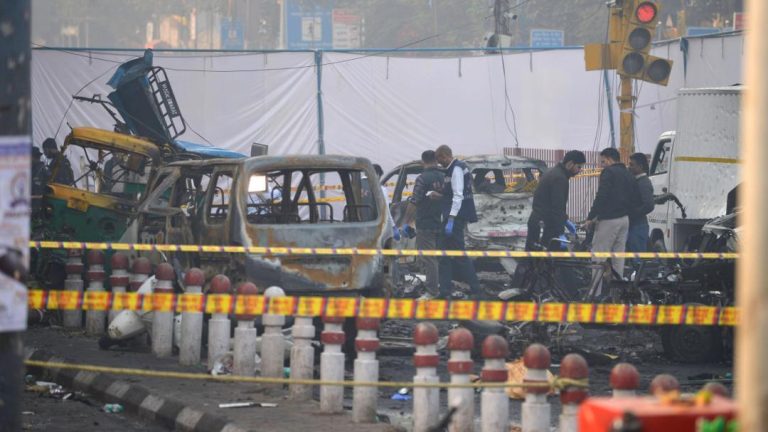
DGCA Introduces Special Audits after Air India Plane Crash in Guj
The recent Air India plane crash in Gujarat has sent shockwaves across the nation, leaving at least 270 people dead. The incident has raised concerns about the safety and maintenance of aircraft in India, prompting the Directorate General of Civil Aviation (DGCA) to take immediate action. In a bid to strengthen aviation safety, the DGCA has introduced a new framework for comprehensive special audits, aimed at conducting a thorough evaluation of the aviation ecosystem.
In a statement, the DGCA said that the goal of these special audits is to generate a 360-degree evaluation of the aviation ecosystem, reflecting both its strengths and areas needing improvement. The audits will be conducted by a senior DGCA official, ensuring that the evaluation is thorough and unbiased.
The introduction of special audits is a significant step towards enhancing aviation safety in India. The DGCA has been at the forefront of ensuring the safety of passengers and crew, and this new initiative is a testament to their commitment to maintaining high standards in the industry.
So, what are these special audits all about? And how will they help improve aviation safety in India? Let’s dive deeper into the details.
What are Comprehensive Special Audits?
Comprehensive special audits are a new framework introduced by the DGCA to conduct a thorough evaluation of the aviation ecosystem. These audits will focus on various aspects of the industry, including aircraft maintenance, crew training, and operational procedures.
The audits will be conducted by a senior DGCA official, who will assess the compliance of airlines, airports, and other stakeholders with DGCA regulations and standards. The official will also identify areas of improvement and provide recommendations to ensure that the industry adheres to the highest safety standards.
Objectives of Special Audits
The primary objective of special audits is to identify potential safety risks and take corrective action to mitigate them. The audits will help to:
- Enhance the safety of passengers and crew by identifying and addressing potential safety risks.
- Improve the maintenance and operation of aircraft, ensuring that they are airworthy and meet safety standards.
- Strengthen the training and competence of crew members, ensuring that they are equipped to handle emergency situations.
- Improve communication and coordination between stakeholders, including airlines, airports, and regulators.
- Enhance the overall efficiency and effectiveness of the aviation ecosystem.
How will Special Audits be Conducted?
The special audits will be conducted in a phased manner, covering a range of stakeholders in the aviation industry. The audits will involve a thorough review of documents, records, and procedures, as well as on-site inspections and observations.
The DGCA official conducting the audit will assess the compliance of stakeholders with DGCA regulations and standards, and identify areas of improvement. The official will also provide recommendations to stakeholders to address any deficiencies or non-compliances identified during the audit.
What does this Mean for Airlines and Passengers?
The introduction of special audits is a significant development for airlines and passengers in India. It demonstrates the DGCA’s commitment to maintaining high safety standards in the industry, and its willingness to take proactive measures to prevent accidents.
For passengers, the introduction of special audits means that they can be assured of a safer and more reliable air travel experience. Airlines, on the other hand, will need to ensure that they comply with DGCA regulations and standards, and implement the recommendations made by the audit team.
Conclusion
The recent Air India plane crash in Gujarat has been a wake-up call for the aviation industry in India. The introduction of comprehensive special audits by the DGCA is a significant step towards enhancing aviation safety, and demonstrates the regulator’s commitment to maintaining high standards in the industry.
As the aviation industry continues to evolve, it is essential that regulators and stakeholders work together to identify and mitigate potential safety risks. The special audits introduced by the DGCA will help to achieve this goal, and ensure that passengers and crew can travel safely and confidently.






